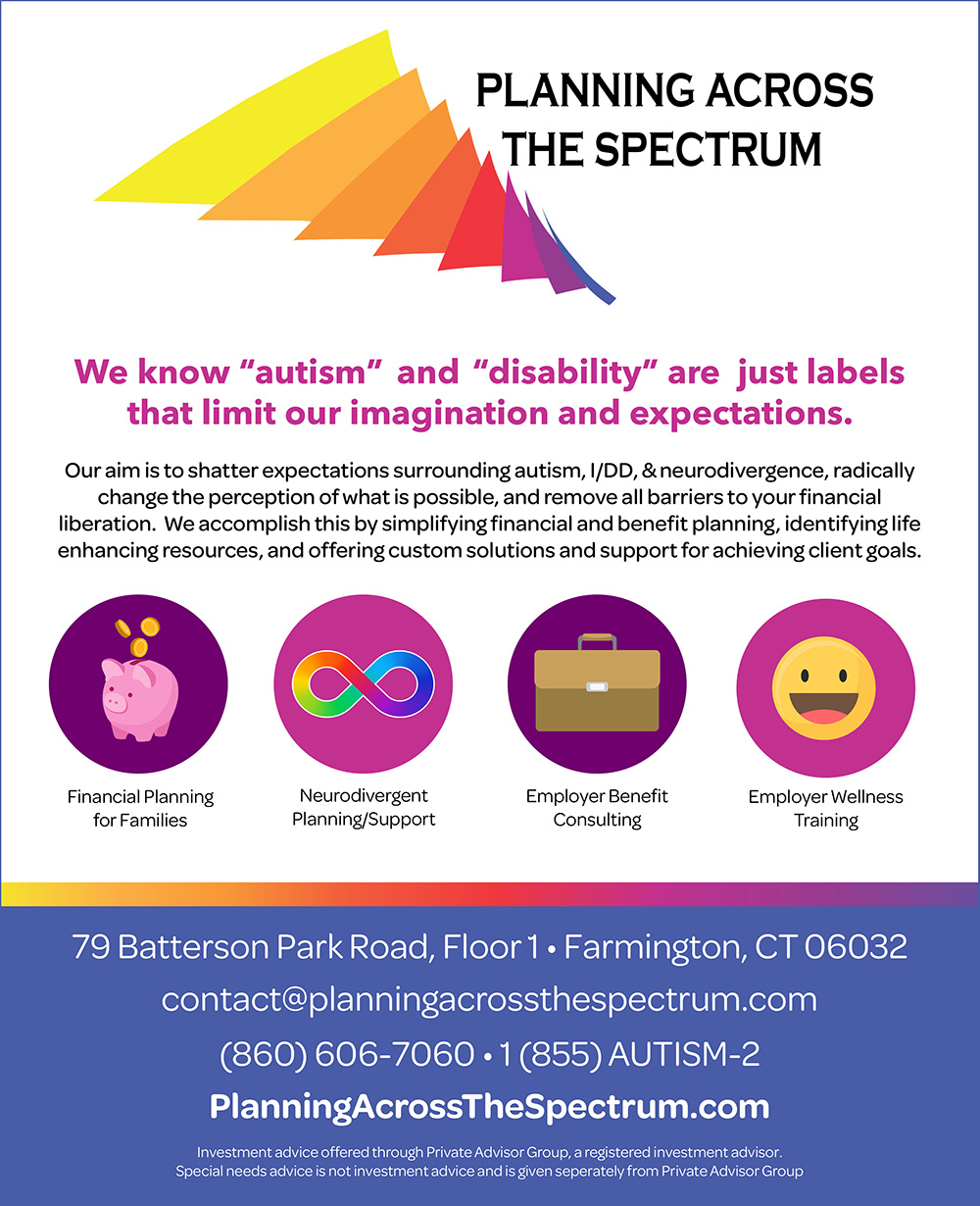With an ever-shifting trend toward hiring more neurodiverse employees, we are seeing major profit potential for financial and technology companies. These types of employers have begun to realize and capitalize on the unique value that a team of neurodiverse employees can bring to the table. Around the globe, more and more organizations are starting to launch Autism and neurodiverse hiring initiatives. With roughly 1/6 of individuals falling somewhere within the spectrum of neurodiversity, three common questions have begun to pop up:
- Are the benefits I am offering inclusive enough to encompass the needs of the entire scope of types of employees I have?
- Are there better opportunities I could be presenting to not only new hires, but my current employees as well?
- What services can I turn to that will help me find the right benefits for my employees?
Let’s break down the types of benefits you may be offering, how you can shape them to fit your entire team’s needs, and how the benefit planning services offered by Planning Across the Spectrum can help you maximize benefits for your entire workforce.

Insurance (Medical, Life, and Disability)
While all insurances have unique talking points, it is very important to note a few key things when it comes to presenting these types of benefits to potential and current employees of your neurodivergent team. By doing so, you can make sure that everyone is set up for success.

Andrew Komarow, MSFS, CFP©
Make sure your plan documents are clear, concise, and easy to read.
If possible, include the “why” in the documents. A short list of what each type of benefit is, how it works, and why it is important will be helpful in giving your employee as much information and room to plan as possible.
Make sure to include a distinct and clear timeline as to when each piece of information is due, when each piece of the plan will go into effect, and when and if things will change over time.
Medical Insurance – Neurodivergent individuals may have unique medical needs, and a good medical insurance benefit package should address them. However, the neurodivergent population is not a monolith, and you must consider that some plans may be counterproductive depending on an individual employee’s situation. For example, high deductible health plans (HDHPs) and contributions to a health savings account may be a perfect fit for someone without Medicare/Medicaid, but individuals who are enrolled in government funded programs will likely be ineligible for an HDHP/HSA.
Likewise, another popular plan type rewards employees for completing health-related goals and activities by offering discounts on their premiums, among other things. On the surface, this seems like a great idea, but you need to consider the types of individuals you are employing and whether these “simple” health goals are truly attainable for them. Moreover, studies have shown that these types of plans often have negative side effects on morale.
With that in mind, it’s important to think outside the box and consider other programs and opportunities that are available to neurodiverse and disabled employees, often at little to no extra cost. If all this sounds overwhelming, don’t worry – we can help you pinpoint the best health benefits program for all of your employees.
Life Insurance – As a rule of thumb, try not to offer life insurance benefits just because someone walked in and offered you a box to check off. While tempting to offer something inexpensive, it is critical to work with a broker and carrier who understand the neurodiverse population that is being served and can read some of the finer details of the life insurance policy. Moreover, many individuals with complex health needs may be ineligible for life insurance on their own, so offering them an affordable option to carry can be a valuable way to recruit and retain key talent.
It is also important to know exactly what benefits are on the life insurance policy. For example, will the employee be able to purchase and maintain their life insurance if they leave their position? Is that something you want to offer? These sorts of questions must be considered when you’re picking a plan to suit your neurodiverse team.
Disability Insurance – Neurodiverse individuals are likely to have pre-existing medical conditions that make acquiring disability insurance on their own a difficult prospect. That’s why it’s important to not just offer disability insurance to your employees if you can, but to do your due diligence and make sure that they’re eligible for what you’re offering.
Disability, for insurance purposes, boils down to whether or not an employee can work, which overly simplifies – and even excludes – certain conditions. Many pre-existing conditions tend to be excluded. Fine print items may say if the individual can perform “any job,” they are excluded from collecting disability benefits. Some plans allow for part-time work, but some don’t. Many employers do not want to deal with the hassle of setting up and doing the due diligence on all the tiny details with disability insurance, but it is worth every moment spent for the benefit it can give to your team.
Retirement and Investment
401(K), 403(B), Etc. – 401(k)s and 403(b)s both fall under the umbrella of “defined contribution plans” because there is a defined amount of contribution that the company and the employee can and will potentially put into the plan. There are many considerations that you may not have thought of when it comes to a defined contribution plan for neurodiverse employees. Most advisors are not specialists in group benefits, such as 401(k) plans. Even if they are, they often do not understand how defined contribution plans can interact with disability or medical benefits an individual may or may not be receiving. Be careful simply signing up with the plan that your payroll company or your personal financial advisor recommends. Get an outside opinion and schedule a consultation with one of our 401(k), 403(b), and pension experts so you feel confident that the company you choose is prepared and able to present options to your neurodiverse workforce in an easy-to-understand way.
Balance is key – you want to offer your employees choices and flexibility so that they can see the impact of their investments firsthand, but not too many choices as to become overwhelming. You also need to consider several things on the back end such as part-time employees, long term employees, profit sharing, and more. A good provider will be able to help you work out all of these options and coordinate them in a way that works with your employee’s existing benefits.
Financial Planning – Financial planning is a unique but useful benefit that employers can offer to employees who need it, at their discretion. Many neurodiverse individuals have questions about their money, benefits, and how that may affect them in the future, but do not have access to someone who can answer their inquiries.
You can directly address this critical need by hiring a financial planner to sit down with each employee to answer their financial questions, explain their benefits package, and educate them on their options. Our financial planners specialize in working with neurodiverse people, and the services we offer can help enhance their quality of life while promoting the value of their employer. We have found that employers often save money, get more plan participants, and ultimately retain employees longer by including financial planning services with their retirement plans.
ABLE/Other – ABLE accounts are tax advantaged savings accounts specifically for individuals with disabilities. They are similar to the more commonly known tax law surrounding 529 college savings plans and are also called 529A plans. ABLE account benefits can be easily afforded and offered by employers simply by enabling the employee to take a portion of their check and have it go directly into an ABLE account from the payroll direct deposit, much like a 401(k) contribution. This is a great benefit because the employer can simply be the facilitator of the benefit. An alternative for individuals who are not eligible for ABLE accounts at your organization would simply be to offer direct deposit into traditional college savings accounts. If your employees don’t have ABLE accounts, we specialize in helping people set up and manage ABLE accounts for their neurodivergent employees.
Other Benefits
There are many other benefits that employers can offer that go beyond “traditional”. These ala carte benefits can attract and retain key employees, offer a unique value proposition for your workforce, and may be offered in lieu of traditional benefits a neurodiverse employee may not be able to take advantage of.
Transportation – Transportation tends to be a barrier that prevents many neurodiverse and disabled people from holding a job, so offering transportation benefits can serve to attract and retain talent. While this kind of benefit is a no-brainer for employers who see their employees commute via public transportation in cities, you can also assist with transportation by offering a direct cash benefit or a ride sharing commuting service. If assembled correctly, transportation benefits are not taxable to the employee and can produce a huge boost in employee satisfaction & workplace productivity. As long as transportation benefits are non-discriminatory and offered to all employees, they can be an invaluable option for your workforce.
Dependent Care – An employer has the ability to set aside employee compensation in a tax advantaged way to cover things such as dependent care. This is extremely important at a time when more and more adults in the household are working. Dependent care benefits can be used not only for childcare, but for elderly adults and disabled family members who need round-the-clock care. These kinds of benefits also factor in caretakers of disabled individuals as well as the individuals themselves.
Legal Services – Legal services are an important and often overlooked benefit that employers can offer. This can be beneficial not only for neurodiverse individuals, but for all employees making it a great, competitive and relatively simple to acquire benefit to offer. An employer can negotiate a discounted rate with pre-screened attorneys in different areas of expertise, making it incredibly cost effective. There are also legal insurance plans which work in many ways like health insurance plans do. The employee pays a monthly premium. If and when they happen to need legal services, they will have access to an attorney who can help them without any out-of-pocket costs. This comes at no or very low cost to an employer, as the employee is paying the premium.
For a neurodiverse individual, routine and predictability can be among the most important aspects to their success. We all know, when we need legal help it tends to be due to something unexpected. Having legal help already accessible and attainable in this way may be the difference between a situation running smoothly or a complete meltdown making this a benefit one that is not just highly enticing but gives a competitive edge to a potential employer.
This article has been republished with permission. The original posting can be found here.
Andrew Komarow is an autistic Certified Financial Planner™ and founder of Planning Across the Spectrum. Andrew specializes in helping individuals with autism and intellectual disabilities, achieve financial security. He can be reached at andrew@planningacrossthespectrum.com or 1-855-AUTISM-2.




